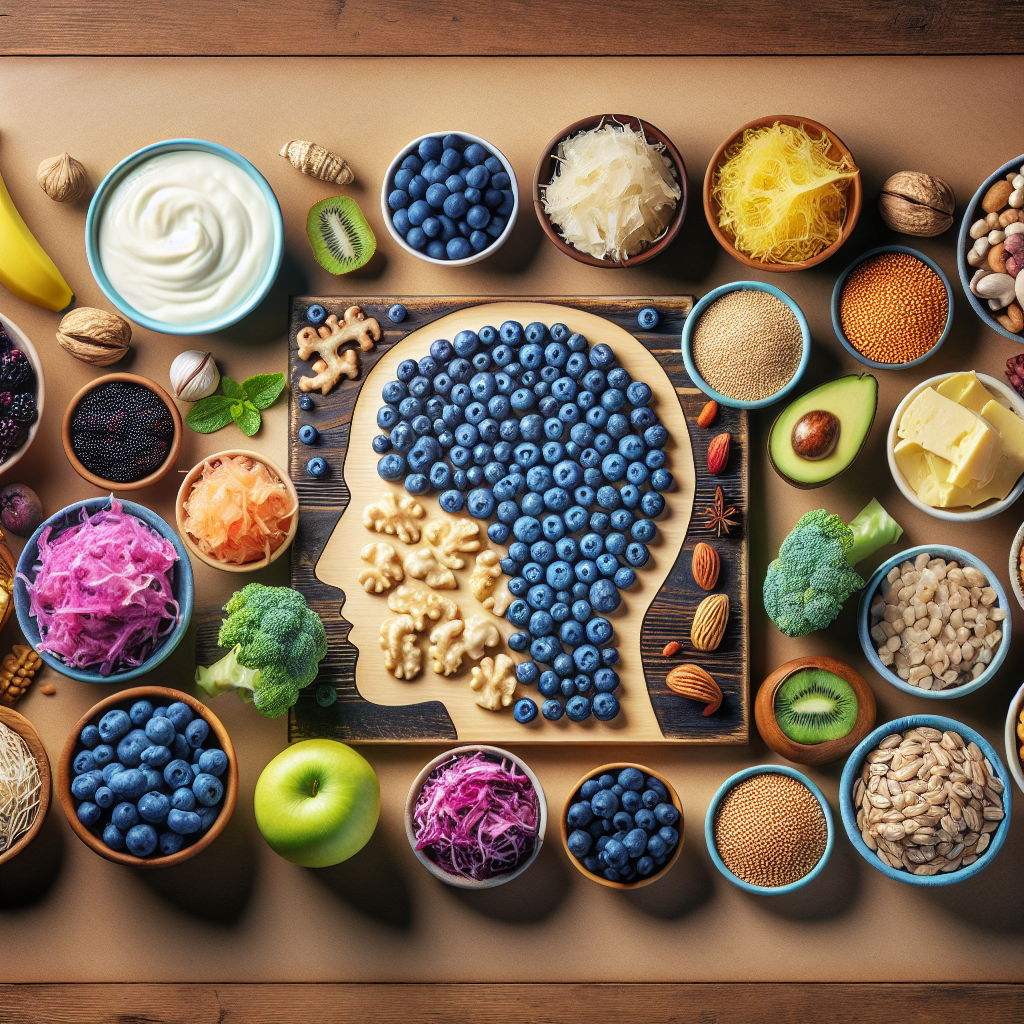The gut-brain connection is one of the most fascinating discoveries in modern health science. Research shows that the foods we eat don’t just impact our digestion—they also influence our mood, cognitive function, and overall mental well-being. Organic foods, in particular, play a crucial role in nurturing a healthy gut microbiome, which in turn supports brain health. From fermented superfoods to fiber-rich plant-based choices, the right diet can enhance both gut and mental wellness.
Why Organic Foods Matter for Gut-Brain Health
Conventional farming often relies on pesticides, synthetic fertilizers, and antibiotics, which can disrupt the delicate balance of gut bacteria. Organic foods, on the other hand, are grown without these harmful chemicals, making them a safer and more effective choice for gut health. A well-balanced gut microbiome is essential for producing neurotransmitters like serotonin, often called the “happy hormone,” which is primarily made in the digestive tract.
The Science Behind the Gut-Brain Axis
The gut-brain axis is a two-way communication system between the digestive tract and the brain, largely mediated by the vagus nerve and gut microbiota. Studies suggest that a healthy gut microbiome can reduce inflammation, lower stress levels, and even improve memory and focus. Organic foods rich in probiotics, prebiotics, and polyphenols help maintain this delicate balance, fostering both physical and mental well-being.
Top Organic Fermented Foods for Gut Health
Fermented foods are packed with beneficial probiotics that enhance gut flora diversity. Here are some of the best organic options to include in your diet:
- Sauerkraut: Made from fermented cabbage, it’s rich in probiotics and vitamin C.
- Kimchi: A spicy Korean fermented vegetable dish loaded with gut-friendly bacteria.
- Organic Yogurt: Look for live cultures and minimal added sugars to maximize probiotic benefits.
- Kefir: A fermented milk drink that contains a broader range of probiotics than yogurt.
- Miso: A traditional Japanese seasoning made from fermented soybeans, great for soups and marinades.
How Fermented Foods Improve Mental Health
Probiotics in fermented foods reduce gut inflammation, which is linked to anxiety and depression. They also help produce short-chain fatty acids (SCFAs) that support brain function by strengthening the intestinal barrier and reducing harmful bacteria.
Fiber-Rich Organic Foods to Nourish Your Gut
Prebiotic fiber feeds the good bacteria in your gut, helping them thrive. Some of the best organic sources include:
- Chicory Root: One of the richest sources of inulin, a powerful prebiotic.
- Garlic & Onions: Contain fructooligosaccharides (FOS), which promote healthy gut flora.
- Bananas: Especially when slightly green, they provide resistant starch that supports digestion.
- Organic Whole Grains: Oats, quinoa, and brown rice are excellent for gut motility and microbiome health.
- Apples: Rich in pectin, a fiber that increases beneficial bacteria like Bifidobacteria.
The Role of Fiber in Mental Clarity
Fiber helps regulate blood sugar levels, preventing energy crashes that can affect mood and focus. Additionally, fiber-rich diets have been linked to lower rates of depression, thanks to their anti-inflammatory effects and ability to enhance gut-brain signaling.
Organic Polyphenol-Rich Foods for Cognitive Health
Polyphenols are plant compounds that act as antioxidants and support gut bacteria. Some top organic choices include:
- Blueberries: Packed with flavonoids that improve memory and reduce oxidative stress.
- Dark Chocolate (70%+ cocoa): Enhances mood and gut diversity when consumed in moderation.
- Green Tea: Contains L-theanine and catechins, which promote relaxation and focus.
- Extra Virgin Olive Oil: Supports gut lining integrity and reduces brain inflammation.
Practical Tips for a Gut-Brain Friendly Diet
To maximize the gut-brain connection, consider these dietary strategies:
- Prioritize Variety: A diverse diet leads to a diverse microbiome, which is key for resilience.
- Eat Organic When Possible: Reduces exposure to gut-disrupting pesticides and chemicals.
- Include Both Probiotics and Prebiotics: Fermented foods and fiber work synergistically.
- Stay Hydrated: Water supports digestion and nutrient absorption for optimal brain function.
- Limit Processed Foods: Artificial additives and excess sugar can harm gut bacteria.
By incorporating these organic, gut-friendly foods into your diet, you can support not only digestive health but also mental clarity, emotional balance, and long-term cognitive function. The gut-brain connection is powerful—nourish it well, and your mind and body will thank you.
